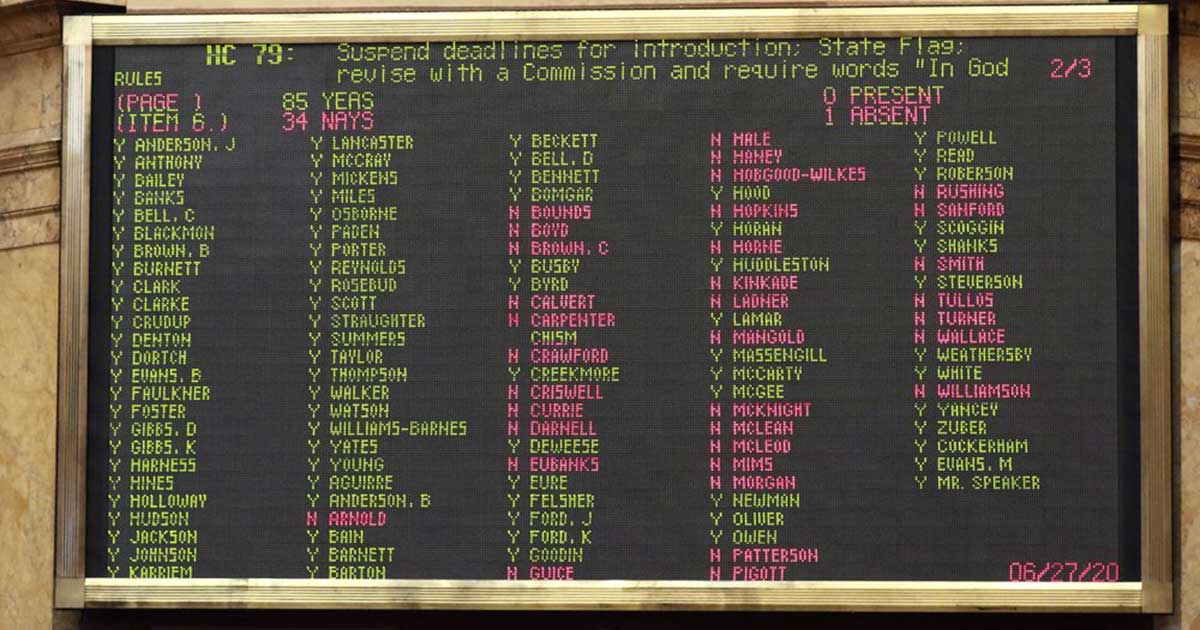Mississippi Lawmakers took a huge step forward Saturday as they vote to erase the Confederate battle emblem from the state flag, earning cheers and applause from spectators at the Mississippi Capitol.
“The eyes of the state, the nation and indeed the world are on this House,” Republican Representative and speaker pro tempore of the House Jason White said in front of his colleagues.
Meanwhile, Senator Briggs Hopson declared, “Today, you — Mississippi — have a date with destiny.”
The state is comprised of 38% Black population yet it has the last state flag with the Confederate battle emblem, which earned an intensifying criticism in the recent weeks nationwide protests against racial injustice.
Republican Governor Tate Reeves has previously taken a more passive stance in changing the flag, but went the other way when he said Saturday that this is the first time he would sign the bill if a Republican-controlled Legislature sends him one.
“The argument over the 1894 flag has become as divisive as the flag itself and it’s time to end it,” he said.
Both the House and Senate voted to suspend legislative deadlines and file a bill to change the flag, and garnered more than the required two-thirds majority.
“I would never have thought that I would see the flag come down in my lifetime,” said African American Democratic Senator Barbara Blackmon.
The bill includes building a commission to design a new flag, which must include the phrase “In God We Trust”, must exclude the Confederate battle emblem, and shall remove the Mississippi flag from state law.
The new design will then be put on the ballot and voted on by November 3, and will become the state flag should the majority accept the new design.
Should the majority reject it, the commission shall submit another design using the same guidelines.
“I know there are many good people who … believe that this flag is a symbol of our Southern pride and heritage,” White said.
“But for most people throughout our nation and the world, they see that flag and think that it stands for hatred and oppression.”







